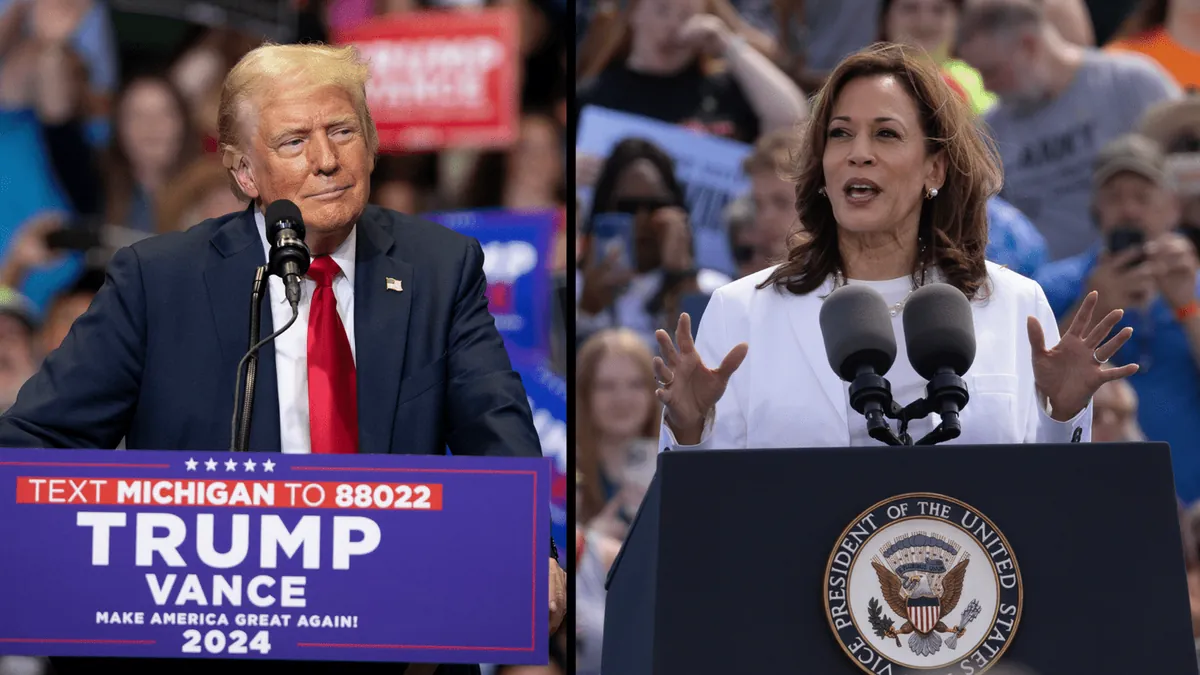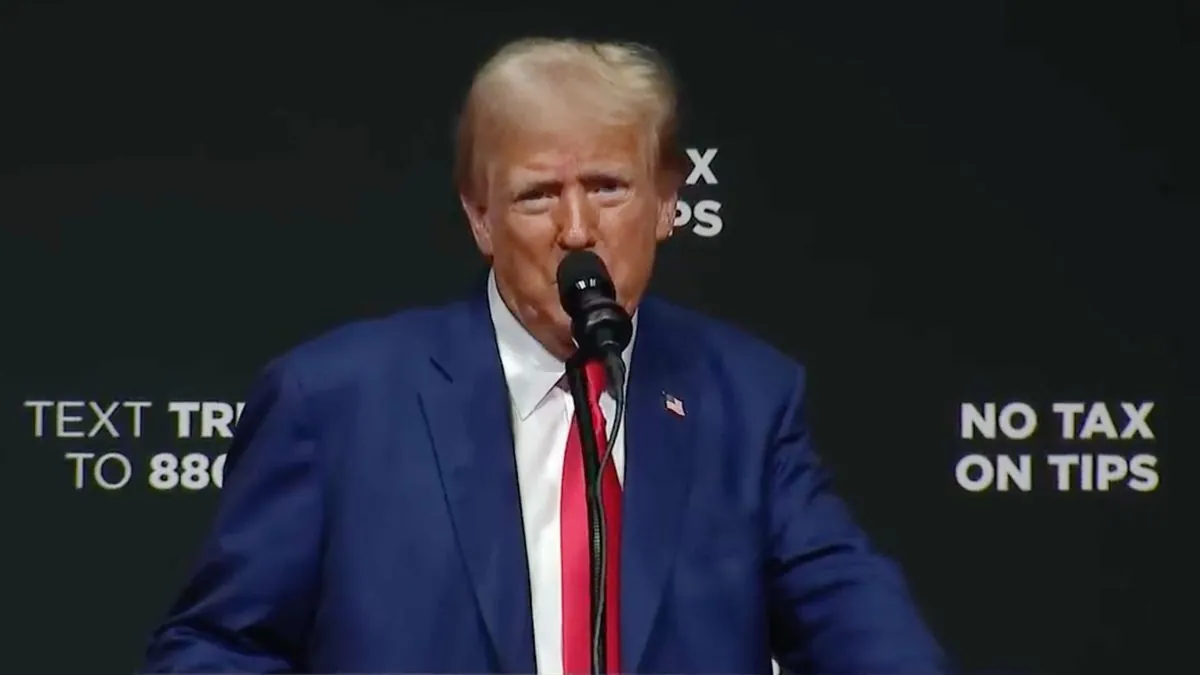Harris and Trump Blur Party Lines in 2024 Election Strategy Shift
In a surprising twist, Kamala Harris and Donald Trump are adopting unconventional policy positions to broaden their appeal in the 2024 presidential race, challenging traditional party boundaries and voter expectations.

In the ongoing 2024 U.S. presidential election, Kamala Harris and Donald Trump are employing strategies that challenge traditional party lines, aiming to expand their voter base beyond conventional boundaries. This shift in approach highlights the evolving nature of American politics and the candidates' efforts to secure victory in a fiercely competitive race.
Donald Trump, the Republican nominee, has recently taken positions that diverge from typical conservative values. Last week, he proposed a 10% federal cap on credit card interest rates, a move that surprised fiscal conservatives. Additionally, last month, Trump expressed support for a federal law mandating insurance coverage for in vitro fertilization (IVF), a stance at odds with some social conservatives.

These policy shifts by Trump are not entirely new. Since his entry into politics, he has often departed from traditional Republican stances on issues such as trade and foreign policy. Tulsi Gabbard, a former Democratic congresswoman now supporting Trump, noted that many of his positions align with what were once core Democratic values.
"There's a whole host of issues that draw people to support President Trump, and quite frankly, these are issues that used to be core pillar issues of the Democratic Party."
On the other side, Kamala Harris is making concerted efforts to appeal to Republican voters. Her campaign has organized events focusing on issues like abortion rights, border security, and small business creation, featuring Republican officials as speakers. Harris has also pledged to include a Republican in her Cabinet if elected and has been more vocal about her gun ownership.
"I'm a gun owner... If somebody breaks in my house they're getting shot. Sorry."
This strategic shift by both candidates reflects the complex political landscape of the United States. The Democratic Party, founded in 1828, and the Republican Party, established in 1854, have seen their traditional roles and voter bases evolve over time. The current blurring of party lines is reminiscent of historical shifts, such as the realignment that occurred during the Civil Rights era.
The 2024 election may hinge on how successfully each candidate can attract voters from the opposing party. Trump's campaign is targeting African Americans, Hispanics, and labor union members, groups traditionally aligned with Democrats. Meanwhile, Harris has gained support from over 100 Republican national security and foreign policy officials, including former Vice President Dick Cheney.
Despite these crossover appeals, both candidates largely maintain their core party positions. Trump continues to oppose abortion rights and supports strict immigration policies, while Harris advocates for liberal policies on issues such as climate change and voting rights.
As the election approaches, it's worth noting that voter turnout and engagement will be crucial. Historically, the highest voter turnout in a U.S. presidential election was 81.8% in 1876. The outcome of this election, like all others since the ratification of the 12th Amendment, will be determined by the Electoral College rather than the popular vote.
The 2024 race between Harris and Trump is shaping up to be a unique chapter in American political history, challenging voters to look beyond party labels and consider each candidate's individual policy positions. As the campaign intensifies, it remains to be seen how these unconventional strategies will impact the final outcome.


































